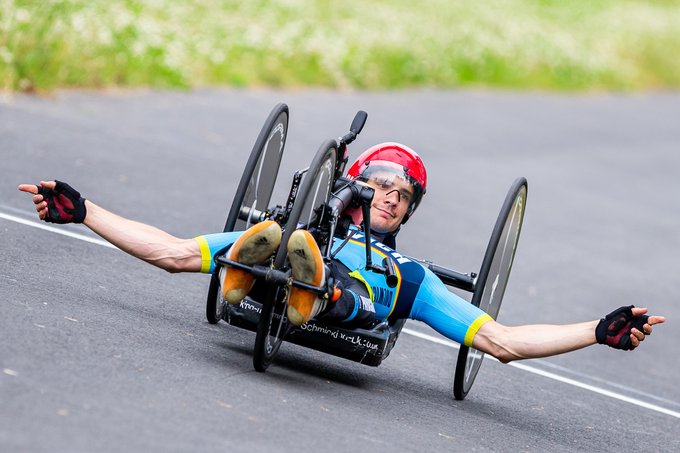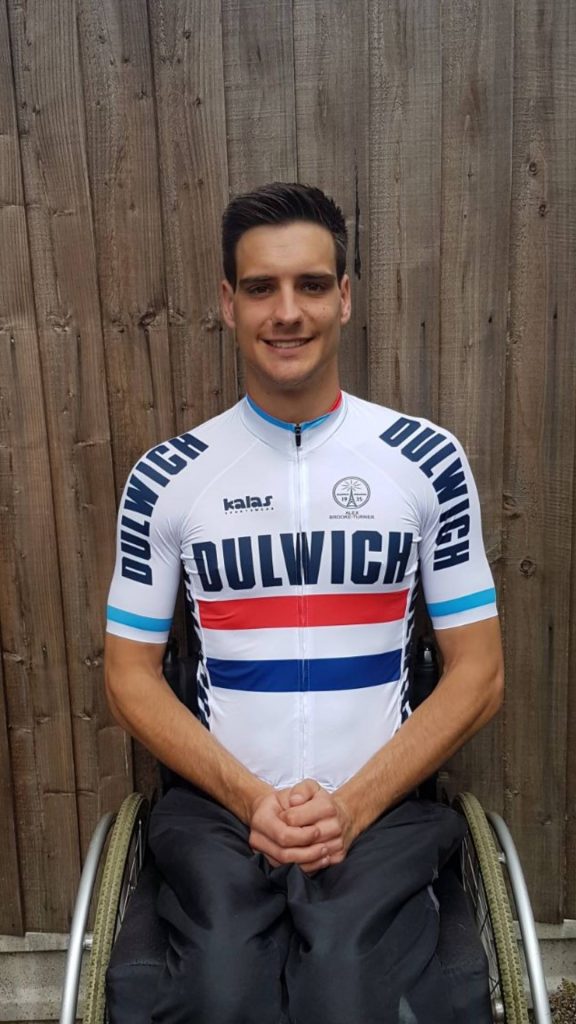Blog
This is Alex's story.... #SCIAD20
This Spinal Cord Injury Awareness Day we’re working on building a collection of stories to show not only that spinal cord injury can happen at any age, but that resilience can too. Find out more information about what we are doing for Spinal Cord Injury Awareness Day 2020 here.
Alex talks about his personal experience of living with paralysis to help others affected by spinal cord injury.
Working is an important part of most people’s lives. It can be mentally stimulating, provide a sense of purpose and be part of your identity. Spinal cord injury can make you feel that your entire life has been put on hold, this can often include your career.
This was true for Alex, who sustained a life-changing spinal cord injury whilst studying at university. After his injury, Alex was nervous to start his career but through volunteering and by taking part in the Back Up to Work course he was able to rebuild his confidence. The course, with its emphasis on speed interviews and honing CV skills showed him that there was so much he could do to help himself on his journey to employment.
A numbers man, Alex now works part-time in the finance department at estate agents, Savills. The role provides him with plenty of time to dedicate to his other passion – sport.
Alex told us about how, with a positive attitude, he realised that starting a career after spinal cord injury is not impossible – and how he learned to focus on what he could do after spinal cord injury, not on what he couldn’t do.
Tell me a bit about yourself – who you are, what you do…
I’m Alex, I’m 30 and I work in finance. I spend a lot of time on my bike too. I was 21 when I had my injury and I was studying economics and was between my second and third year of university at the time.
How did you sustain you SCI?
My injury is at level T10/11, complete. I sustained my injury when I was cycling from London to Croatia. I was riding through Belgium and I went over my handlebars. I spent three months at the National Spinal injury Centre at Stoke Mandeville, before returning to Manchester to finish my degree.
Stoke Mandeville is where I first met Back Up. I took part in their wheelchair skills training session. It was tricky, I wasn’t very good at it at first, but it was great to meet other people with spinal cord injury who had gone through the same thing as me. This really helped me think more positively about my own injury.
How does your injury affect your day-to-day life; pain, fatigue, mobility etc.
In terms of my injury, my attitude definitely helps me in my day-to-day life. I’m an easy-going person so I find it easy to take things in my stride. Thankfully I was destined for an office job being in economics, so my injury didn’t affect my career trajectory. My office is also accessible, as I work for a big company.
Even though I can’t walk any more, I can still play sports, but in a different way. That same summer after sustaining my injury I bought myself a hand bike and I finally finished the London-Croatia cycling challenge!
What are your hopes/ambitions for the future?
I actually approached Savills for some initial work experience after completing the course. This turned into a temporary part-time position assisting the finance team with their administration and has now led to a permanent part time post in the team. My company have been incredibly supportive of my career and have made the workplace fully accessible. I really wasn’t sure that I would find something like this and that it would be possible before taking part in Back Up to Work.
At the moment I want to keep working part time as it gives me time to focus on my cycling too. I probably will at some point in the future look to work full time, but I am happy to carry on as I am for the time being.
What advice would you give to someone else in a similar situation?
I’ve managed a successful career even though I was a bit apprehensive about getting into work after my spinal cord injury at first. After graduation I volunteered in the Back Up office just to help me get out of the house and to gain some skills and experience working in an office environment. I was applying for jobs at the time and like so many I found it really hard when I heard nothing back.
This is actually what led me towards joining the course in the first place. The course opened up so many opportunities for me and has helped me understand so much, including the importance of making work accessible for everyone.
The course, and working more generally, has really helped me boost my confidence and I would say to people in a similar situation that, even if you’re nervous re-entering the workplace, you should always try to go for it. It’s so important to realise what you can do after spinal cord injury rather than focus on what you can’t. Afterall you never know what you can do until you try, and I am so glad I did.
We’re pleased to hear that you recently were accepted onto the British hand cycling team – could you tell us a bit about this?
Getting accepted onto the British hand cycling team is a part of the journey that started in 2013 when I first got my hand cycle. I’m excited to get started, work with the team, and see what gains I can make.
It’s taken 5 years of solid training to get a place on this team, and I’ll be on the team for the next four years. I’m going to keep working part time and cycling into the future!

